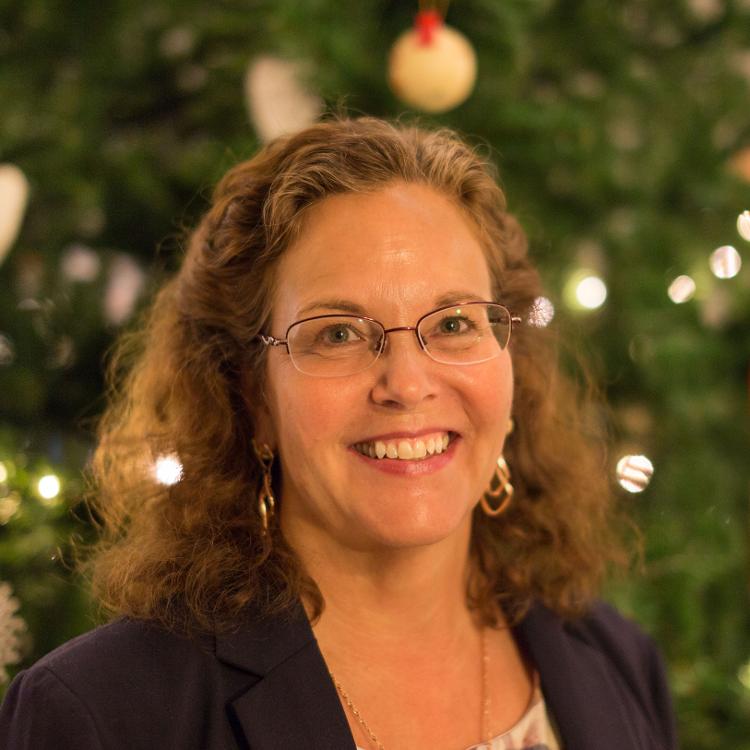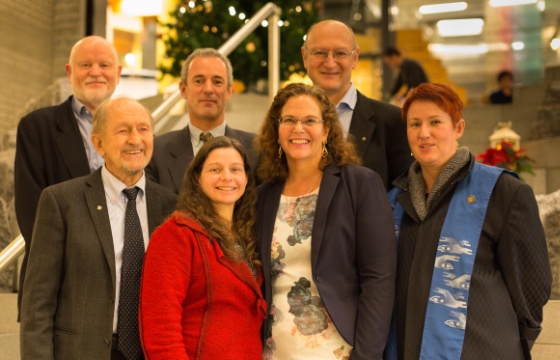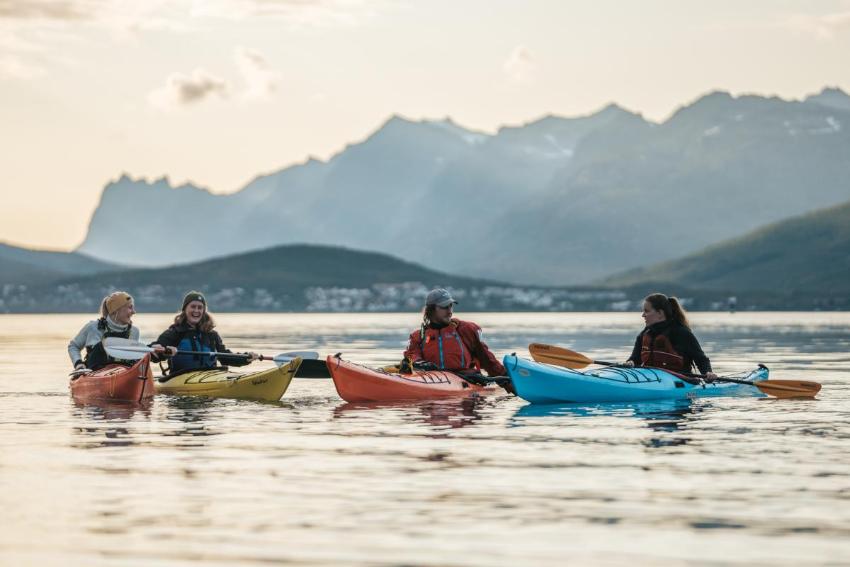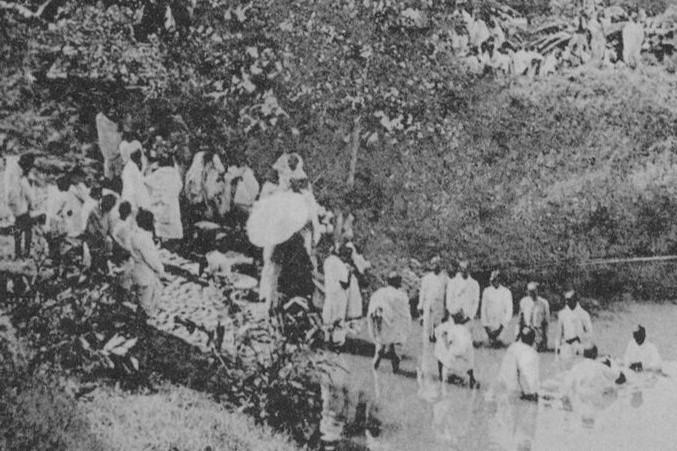Marine angling tourism in Northern Norway – a case study
MSc Maria-Victoria Solstrand, NFH - defended 17. December publicly to the PhD Degree in Social Sciences the dissertation: "Marine tourism fisheries - Challenges of governance and governability - Northern Norway as a case study"
Marine angling tourism is on the increase, and has the potential to contribute significantly to regional development in remote coastal regions of Norway. However, serious societal conflicts have emerged, primarily as the result of tourists’ access to the fish as a natural resource without governance mechanisms in
 |
| Foto: Børge Damsgård |
place that support how marine angling tourism functions in practice. Using marine angling tourism in Northern Norway as a case study, the question answered with this PhD research is: What are the critical components of a governance strategy that would support a sustainable path of development for marine tourism fisheries in Norway?
Fieldwork was conducted over two summer seasons - 2009 and 2010, in Northern Norway; followed by data collection in 2011 in the Western Fjords of Iceland. In addition to interview data and field observations at the fishing camps, a questionnaire was distributed to the tourists in 12 different languages in Northern Norway. The main conclusions of this study are the following: marine angling tourism is consumptive wildlife tourism, and therefore governance is inseparably linked to the governance of the fish as a natural resource; ecosystem-based stewardship of the fish stocks is essential, and tourists are willing to contribute data toward more accurate estimates of total seasonal catch; stakeholder identification and active participation are vital to maintaining an open-flow of communication, generating new knowledge, and mitigating conflicts; and finally, the regulations need to reflect how marine angling tourism actually functions in practice.
The Commission:
 |
| Foto: Børge Damsgård |
- Professor Jahn-Petter Johnsen, NFH, UiT
- Professor Svein Jentoft, NFH, UiT
Committee:
- Professor Abraham Hallenstvedt (1. opponent)
- Assoc. professor Alyne Delaney, Innovative Fisheries Management, Universitet i Aalborg, Danmark (2. opponent)
- Assoc. professor Jorge Santos, NFH, UiT (Internal member and head of committee)
The disputiation was held in English and was led by Vice-Dean Monica Alterskjær Sundset, Faculty of Bioscience, Fisheries and Economics.
Personalia
The author, Maria-Victoria Solstrand, was born in 1962 in New York, USA. She has a BA in Earth and Planetary Sciences, and an MSc in Environmental Sciences/Conservation Biology – both from The Johns Hopkins University, Baltimore, MD, USA. Work experience prior to the PhD includes the position of Executive Secretary for CAFF – the Conservation of Arctic Flora and Fauna Working Group of the Arctic Council; followed by a promotion to head the Arctic Council Secretariat in Tromsø.
Name: Maria-Victoria Solstrand
Faculty/department: Norwegian College of Fishery Science – Faculty of Biosciences, Fisheries and Economics
Phone number/mobile number: +47 95 46 13 96
E-mail address: mvsolstrand@gmail.com


